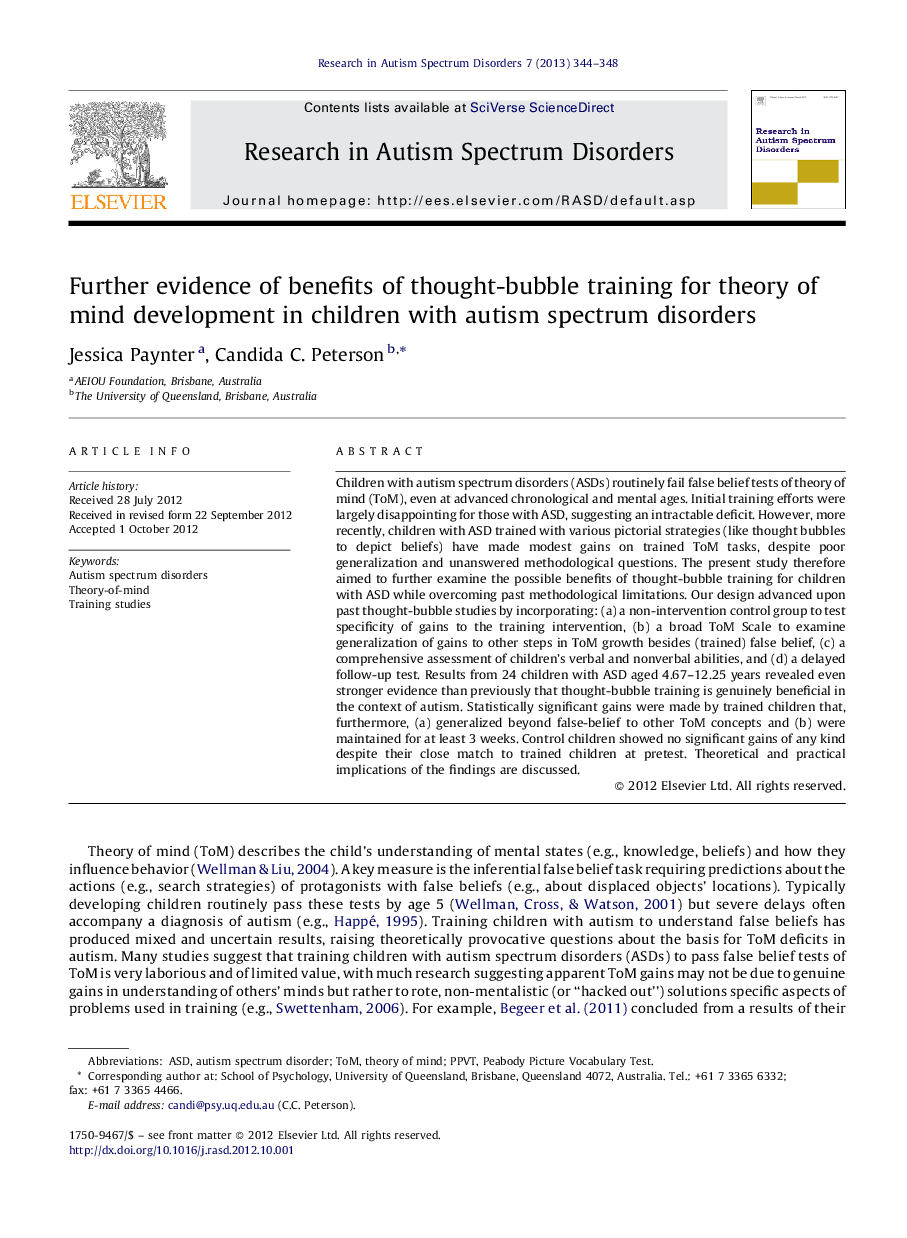| Article ID | Journal | Published Year | Pages | File Type |
|---|---|---|---|---|
| 370496 | Research in Autism Spectrum Disorders | 2013 | 5 Pages |
Children with autism spectrum disorders (ASDs) routinely fail false belief tests of theory of mind (ToM), even at advanced chronological and mental ages. Initial training efforts were largely disappointing for those with ASD, suggesting an intractable deficit. However, more recently, children with ASD trained with various pictorial strategies (like thought bubbles to depict beliefs) have made modest gains on trained ToM tasks, despite poor generalization and unanswered methodological questions. The present study therefore aimed to further examine the possible benefits of thought-bubble training for children with ASD while overcoming past methodological limitations. Our design advanced upon past thought-bubble studies by incorporating: (a) a non-intervention control group to test specificity of gains to the training intervention, (b) a broad ToM Scale to examine generalization of gains to other steps in ToM growth besides (trained) false belief, (c) a comprehensive assessment of children's verbal and nonverbal abilities, and (d) a delayed follow-up test. Results from 24 children with ASD aged 4.67–12.25 years revealed even stronger evidence than previously that thought-bubble training is genuinely beneficial in the context of autism. Statistically significant gains were made by trained children that, furthermore, (a) generalized beyond false-belief to other ToM concepts and (b) were maintained for at least 3 weeks. Control children showed no significant gains of any kind despite their close match to trained children at pretest. Theoretical and practical implications of the findings are discussed.
► Tested whether thought-bubble training boosts understanding of mind in those with ASD. ► Trained children improved on trained and novel false belief tests and a developmental scale. ► Training gains generalized broadly and were maintained at 3-week follow-up. ► No gains were made by a control group despite close matching to trained children at pretest.
